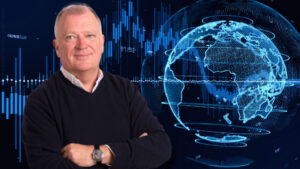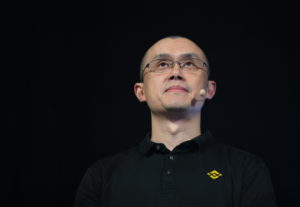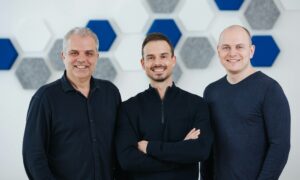How Innovative Companies Build Successful Product Teams: OKRs, Workplace Autonomy, And Psychological Safety
One of our main topics during The Big Reset Days was the future of work and more specifically the mindset processes and trends that will the way we approach our jobs moving forward. So, we invited for a talk a guest from one of the most innovative employers in Sofia – Leanplum. His name is Hristo Penchev and he is a senior technical program manager. In practice he is coordinating all product development teams and making sure that everything gets done on time. Hristo shared valuable insights about workplace autonomy, remote work, psychological safety, OKRs, and all the other practices that form the foundation for Leanplum’s fast business growth. As you may already know pretty much all of the product development and technical engineering of Leanplum’s customer engagement platform are based in Bulgaria.
Trending Topics: Let’s first talk a bit about you. You have been part of the technology world for over 15 years. You have a PhD in computer science, you worked as a chief operating officer at a high tech startup incubator in Germany, you are a lead organizer in tech startup weakened. What is that thing that excites you the most about innovation and startups?
Hristo Penchev: Well, the short answer is the people, it’s the people in the space. This is what excites me and inspires me the most. The long answer.. it has actually changed over time, it has evolved. At the beginning it was the technology, it was the innovation in its core, the idea of exploring new horizons and trying new things out. Then it turned more into a customer-centric approach and I was passionate about how we can transfer this innovation into new services, new businesses and make them available for the people out there. And, as I said, now it’s the people, the people, and the huge challenges they face in order to find the right balance between being innovative and taking the commercial aspects of starting a new business. We have some great examples of great entrepreneurs out there and this is what excites me the most.
Trending Topics: We know that Leanplum wants to create opportunities for qualified Bulgarian who returned from abroad and to have the same conditions here like over there. You were part of the booming startup ecosystem in Germany. First, why did you decide to come back to Bulgaria, and second, why did you choose Leanplum in particular from all the other employers?
Hristo Penchev: You’re right, Leanplum offers an opportunity for people in Bulgaria and abroad. This is true. But on the more general level it is the whole ecosystem that has changed and evolved a lot in the last couple of years in Sofia and in Bulgaria. It was great to observe this development from far and I got lucky to be part of this ecosystem now. For me, personally, it was a holistic decision. I felt at home in Germany after so many years that I’ve spent there, and I loved my job. But at some point, I felt it is time for the next step, it’s time for a change and I do believe the personal and private life are interconnected. So, it was clear that whatever this next step would be, it should be a holistic improvement. As a matter of fact, we were considering four options – to move to Barcelona, Munich, Copenhagen, or Sofia, and we decided at that point in time – Sofia wins the race.
Why Leanplum? Now, obviously being close to friends and family after so many years helped my choice. But as I said I wanted an improvement, I wanted a new challenge, and without the opportunity at Leanplum I wouldn’t be here now. How I found about this opportunity or how I stumbled across this is because I had done my research and I knew pretty clearly what I wanted. I wanted to be part of a global product company, company after a product-market fit phase, that it was either still a startup, scaleup, or at least has maintained the startup culture. As you know, we don’t have that many of them in Sofia. And I’ve learned about Leanplum, got in touch with people in Leanplum and then I entered the selection process. It was long but I’m thankful for this. Just to give you more data and context – I’ve passed seven or eight interviews in the end, until we’ve come to an agreement. As a benchmark Google surveys and best practices showed that the best ratio between the success of selecting the proper candidate and the number of interviews is around four, and we do seven. But why is that? Because we really believe in culture at Leanplum and our selection process goes into both directions. So, I had the opportunity to learn a lot from people at Leanplum, before making my final decision. As well, they had the opportunity to know me on a personal level. In the end, I found out that not only the company on paper looks great but also the people are amazing. They are a very talented bunch of people, all of them very authentic and it was a perfect match for me. So, I picked pretty easily Leanplum.
Trending Topics: Now you’re a technical program manager at Leanplum. You are practically coordinating the product teams and you are making sure everything is done on time. Can you tell us more about your role and what you do to help Leanplum achieve its product objectives?
Hristo Penchev: I’ll try. Program management is well-defined space and the technical program manager role is also well defined. As I mentioned previously, I see Leanplum still as a startup, maybe a scaleup. What does it mean? It means that roles are a little bit more broadly defined and a little bit more flexible and I like this pretty much.
I like to believe my role is like I have the mission to help teams be successful. As a technical program manager, I am responsible for the processes in our organization. Let’s take for example OKRs as a goal-setting framework that we’ve to chosen to use. I am a huge supporter of OKRs and they are a great example of a fairly simple process that is by far not simple in its successful implementation. If you, for example, try to apply OKRs by the book, chances are that you’re going to fail. And this is true for most of the processes. Basically no processes should be applied by the book in my opinion. Processes are supportive tooling for teams.
The magic happens when we collaboratively find the right variation of a given process. And that variation really helps us. So, I tried to drive that collaboration at Leanplum or in other words processes are here to serve and so am I. This is how I see my role. Maybe, to give you more context, a very important part of my role is communication with a great variety of stakeholders. if you want to get the right people involved in a productive discussion at the right time, to set the proper context, explain the desired outcome, to find the best solution (for sure this decision is supported), have a clear and shared understanding about the steps of its execution, all these steps depend on the right communication and obviously you need processes or tools, like racing metrics, to make this possible, but in its core, it’s the communication it’s the personal relationship, its trust, and it’s the right culture. This also defines a big part of my role.
Trending Topics: Diving deeper into the future of the work topic, Leanplum is one of the few companies in Bulgaria pioneering a strategic autonomy program. Meaning that employees can spend a portion of their time working on a project of their own choice as long as it benefits the company in some way. Have you observed any benefits from this program and giving autonomy to people in general – in regards to creativity & business outcomes but also to employee engagement and retention?
Hristo Penchev: Yes. We’ve seen a lot of benefits from such practices that we have. Basically, if you have a group of committed and highly skilled individuals – you want to give them autonomy, you must give them autonomy. This will bring you a whole bunch of benefits on a business level but also as you mentioned in their engagement and retention of the team. We offer people the possibility to choose freely to work on problems driven by their day to day experience and their common sense, more than by top-level company objectives, and they always find ways to improve our platform and our product in indirect ways related to the top-level objectives. It’s a benefit that we would miss if we would be 100% driven by our objectives. Still autonomy at every level should be balanced with the right level of focus, because we are moving in a very competitive space, growing very dynamically, so if you want to compete on a global scale, you need to maintain focus.
Trending Topics: Maybe a slightly adjacent topic is psychological safety, which is also a growing trend. How do you make people feel comfortable and communicate openly without fear of punishment, while at the same time reaching your goals?
Hristo Penchev: Psychological safety is really very complex topic, multidimensional, let’s try to uncover some of its layers. Psychological safety, according to multiple studies, is one of the major factors for the success of a given team and organization, so it’s obviously very important. For me, personally, it means two things – the one is, to feel the safety to talk about challenges in your own tasks and efforts, even if you fail, and the second thing is – not be afraid of giving critical feedback to others. These are the two counterparts that I want to point to. About the first one, talking about goals, it’s important to understand that goals and their achievement cannot be considered in isolation. I mean it’s important to look at the context, at the details. Let’s get back to the OKRs. I believe that a bad OKR score is, in the first place, just an indicator. Indicator of a mismatch between plans that have been made and the reality of execution. So, if something went wrong, let’s sit together, sit down with the right people and discuss matters in the right context with the proper level of details. And then let’s figure out what was it that went wrong. Was it the wrong hypothesis, was it the unknown unknown, was it the change in the business environment, right? But only with the people who are best positioned to make these goals you can find out where do you need the corrective action.
I like to think about achieving goals as an indicator of whether you need to do a retrospective and define corrective actions and not by just scores talking about performance. About the second part – giving critical feedback. Let me give you an example. I believe that psychological safety as a lot of things is driven by example. What we do at Leanplum is – we have from time to time big meetings, companywide or organization-wide with people from our leadership, and these meetings are called – ask me anything. So everyone is free to ask any questions about the highs about the lows, to comment on something, give critical feedback, or share a concern, and then get answers from the representatives of the leadership. This is something that establishes trust, and trust is essential for psychological safety. Another thing that I have in mind that we do is – we implement a continuous feedback approach, which basically means that we have regular but also at hock one-on-ones, where we address all the issues and talk openly about them, basically in real-time. We don’t wait for a given performance cycle whatsoever to criticize on a more generic level, because we believe that this is wrong, we share right away, comment, and focus objectively on the action and consequences, rather than on the person. I think that this is also very important for establishing psychological safety.
Trending Topics: Talking about communication, how interaction between teams in Leanplum changed when everyone switched to remote mode in March? How did the company adopt to the new remote reality?
Hristo Penchev: Leanplum has always been a global company. We have offices and customers worldwide, so we were quite good prepared to face the new reality, driven by Corona. We are used to most of the practices that other companies are now implementing or reinventing. It was part of our day to day business. So, it was in a way an easy transition. With that being said, as I mentioned previously, we have a very cohesive team, very committed team, people like to work and spend time with each other, and we’ve noticed that we miss this ad hoc, unscheduled, spontaneous personal interaction that you have in the office place now as we are remote. So, we introduced some trivial, some nice practices, mostly self-organized by the teams, for example, our traditional Friday Unlined, we do have it over zoom now, we just don’t sit together in the office. We have an open zoom call, which is permanently active, and people can jump in and out, just to have a chat with somebody from the company. People have scheduled, company-wide, a slot in the morning for drinking your coffee with your colleagues, when you are preparing to start the day. In this way we try to compensate for the absence of this physical connection in the space. But in terms of execution and operations, as I said, this is usual for us.
Trending Topics: More broadly speaking, what do you think are the fundamentals of successful remote collaboration?
Hristo Penchev: Great question, COVID or Corona has changed our world and there are more changes to come in the following months, in the post-Corona times. Some people have realized that they are more productive when working remotely, others have learned how much they miss the office space and their colleagues on a daily basis. These processes will continue and what is important is while in the office and now, when working remotely, even more important, in my opinion, is to have the right attitude towards collaboration and towards working. I am a big supporter of the theory of the results-only work environment, which means we don’t count hours spend on tasks, but we count the outcomes of our work and if we focus that way then we can give to our remote workers all the flexibility that they need. Keeping this, we will get to more person and individual level and everyone is free to organize their day, their activities the way that suits him best, and then produce the best results. Obviously, you need some core rules in order to balance this flexibility, but personalization of the working day and the collaboration, being flexible, and focusing on results, these, for me, in summary, are the fundamentals.
Trending Topics: What’s next for the team of Leanplum here in Sofia and your future plans after the end of the quarantine?
Hristo Penchev: I am really happy to say, and it’s not only for the office in Sofia but also for Leanplum, and we are lucky enough to be able to grow our team and to be able to actively hire people, even now in times of Corona. Especially, here in Sofia, we have the main product development hub in the company and right now we are looking for back-end engineers. This trend will continue, we will continue growing, offering opportunities for people in Bulgaria, and also people like me – Bulgarians from abroad to return. And this is part of the future that I see. Having a bigger and more significant footprint here in Sofia and the ecosystem. Hopefully, not only giving opportunities to our new Leanplum employees but being able to give back to the ecosystem too.
Trending Topics: One final question. How do you think your job will evolve as Leanplum continues its growth journey? Are you thinking about any mechanisms in order to make sure things don’t brake as the company quickly scales up?
Hristo Penchev: Obviously with the development of the company, with the growth of the company, things will change, and this is true not only for Leanplum but for every single company that goes through that transition. I believe that we have the right processes in place that will enable us to scale effectively, without losing grip. But again, what is more important is to have the right attitude. There is a famous picture that shows the scrum and agile principles as an iceberg and just the peak above water is the framework itself but all the fundamentals, the culture, the right understand and thinking are below the water surface. So, what I want to say is – we have the right processes in place, but we know that we will need to adopt. The most important is to be agile, to be nimble, and to react to these changes when they come. There is no silver bullet answer.




























